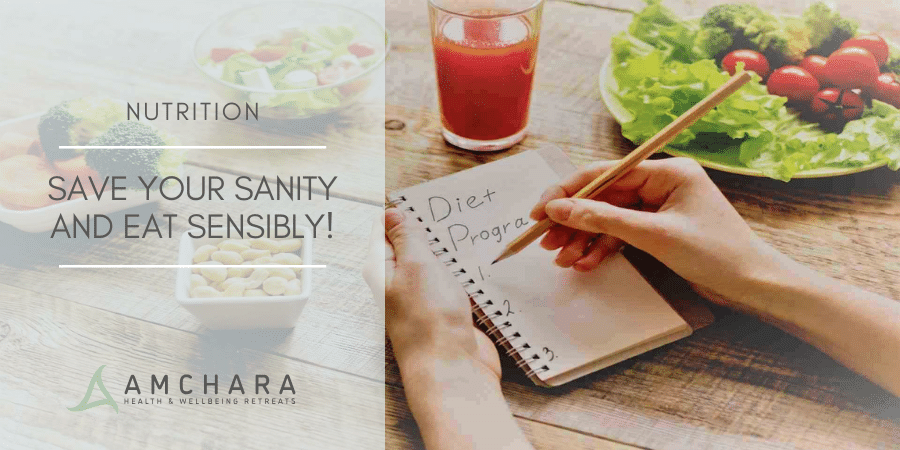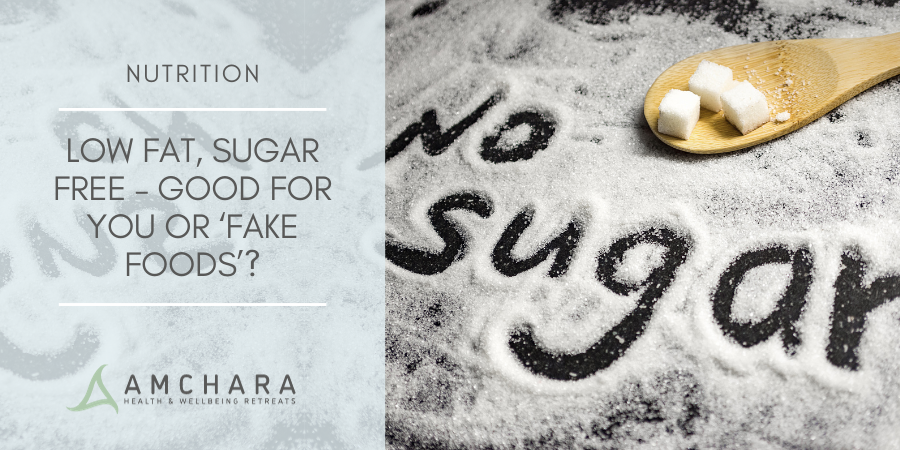Diet gurus’ are so abundant these days that you could be forgiven for thinking they are a whole other breed of humans.
Every couple of months a new ‘self-appointed’ expert gives you the low down on how to shift the pounds or get the va-va- voom back into your life. The range of diet books available these days is so enormous you could fill an entire library with them.
But aren’t you just a little bit fed up with being told what you should and shouldn’t eat, or conversely being told that diets don’t work – well for heaven’s sake why all the books then?!
Well of course diets work, they all do if you can manage to stick to them! How could you not lose weight if you’re only eating cabbage soup 3 times a day or 500 calorie meal replacement shakes instead of real food – but herein lies the problem, can you stick to something so unsustainable?
Extreme calorie or food group restricted diets have their place as a means to kick start a healthy eating plan, or as part of a detox regime after a period of over-indulgence. There’s also increasing evidence these days that a period of fasting can be beneficial to health. And there’s really no harm in restricting your food intake dramatically in the short term if it means after two or three weeks you’ll be the happiest bride on the planet. But let’s get real…..severely restricted diets are simply not going to work in the long term.
Even though the food police are bombarding our television screens with the latest scientific evidence about what we put in our mouths, one thing is clear….we are all different. There are so many factors at play where weight loss is concerned – hormones, DNA, lifestyle, food choices, gut bacteria, blood sugar balance, metabolism, thyroid function, mental health and so on. What works for one person may not work for another and our bodies are so complex we may never get to the bottom of what really makes one person gain weight and the other lose it.
At the end of the day the easiest option is to stop searching for a weight loss quick-fix in the latest beat the bulge book and adopt a sensible approach. Unless you have a health condition that requires specific changes to your diet, really and truly the key to a healthy happy body is moderation and balance, simple as that.
Give yourself a break and try to do the best you can by following these really simple rules:
- Eat protein – any kind: fish, meat, poultry, tofu, beans, pulses, eggs, yogurt, quinoa, milk, nuts, seeds, cheese …… 100g a day per adult is more than enough! Use alternatives if you are intolerant to dairy or have a nut allergy.
- Eat vegetables – lots of them and different kinds (frozen count too)….5-10 portions a day
- Eat fruit – there’s always something everybody likes…1 or 2 portions a day
- Eat carbohydrates – Surely not? Yes in moderation….whole-grains are best, a handful is enough. However Coeliacs will have to be more choosy and avoid gluten containing products.
- Eat fat – butter, olive oil, coconut oil, goose fat, duck fat – just enough to make your food taste good and fill you up. Remember – moderation, it’s not necessary to have food swimming in it. Choose the ones that fit in with any dietary restrictions you may have.
- Drink regularly – water, herbal & fruit teas, green tea, diluted juice. Ordinary tea & coffee are ok too but limit them to 1 or 2 cups a day. Be adventurous..
- Don’t overstuff – eat enough to feel satisfied don’t pile up your plate or go back for seconds, or eat mindlessly in front of the TV – pay attention to what you are eating.
- Chew your food – slow down and take time to chew more, try putting your knife and fork down between mouthfuls, you’ll start to notice when you are full more easily.
- Move – yes every day, get up and walk somewhere or dance around the house or go to the gym, anything that puts a smile on your face, but do it for at least 30 minutes..You can start at 10 and work your way up.
- Moderate alcohol – a glass of wine with dinner is fine, or give up daily drinking and just imbibe on social occasions a couple of glasses at most. Breaking the daily habit is not that difficult.
- Avoid processed foods – make meals yourself why eat cheap, salty, sugary food full of additives and preservatives when home-made food tastes so much better.
- Moderate sugar intake – treat yourself to something indulgent once a week but don’t make it a daily habit and choose a healthy sugar alternative like xylitol that won’t affect your blood sugar levels. It doesn’t take long to lose your sweet tooth.
- Eat Organic – only if you can afford it, even if it’s just one food group like vegetables or meat – otherwise buy local if you can and scrub your fruit and veggies well before eating.
- Please note: Nutritional advice given is appropriate to the general public and may not suit individual dietary restrictions. Where possible Amchara recommends a healthy approach to eating which excludes dairy, sugar and gluten containing produce, but this may not suit all people. Foods free from dairy, gluten and sugar are available in local health food stores and some supermarkets, giving you the option to adjust menus and still enjoy your favourite foods. It is important to maintain balance and variety in any diet and above all enjoy guilt free eating that promotes optimal well-being.Please, check out Amchara’s blog for even more news and advice!
Other related articles of interest:




